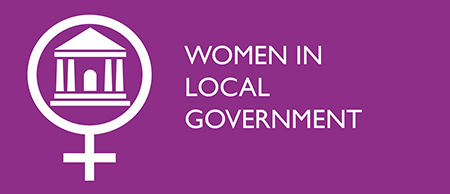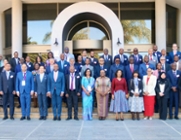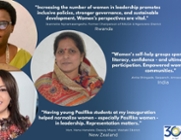Digital tools for women's empowerment in India, Jamaica, Pakistan and beyond!

16 January 2023
CLGF has been working with the Resource and Support Centre for Development (RSCD), Maharashtra, India, and members across Asia, to develop a series of digital tools to address gender parity and increase the number and capacity of women contesting the local elections and serving in local government.
Gender equity at the heart of democracy
In line with Sustainable Development Goal 5 (Achieve gender equality and empower all women and girls), gender equity should be at the heart of any vibrant, democratic society. South Asia has produced some powerful women leaders, but representation in governance processes at central and local level, has remained poor. Many countries have, therefore, introduced quotas for women in local self-government: 33% of seats in local governing bodies have been reserved for women in India and Bangladesh, since 1993; and in Pakistan, since 2000; 20 states in India currently have a 50% quota for women in the Panchayati Raj institutions in their respective State Acts; Sri Lanka introduced a 25% quota in 2016, first practised in the local elections of 2018; and the latest country to allocate a third of all council seats to women in local government was
The Maldives, and this was first implemented during local government elections in April 2021.
Knowledge, confidence and practical skills
The new digital training module seeks to empower elected women representatives (EWRs) with knowledge, confidence and practical skills to become active agents of change in their communities. It prepares women to know their roles, rights and responsibilities as councillors; understand the kind of difficulties to expect; and possible strategies to combat these. The module helps to identify, test, select, compile, and share effective strategies for increased and meaningful participation of EWRs and will contribute to capacity building, training of trainers, peer-to-peer learning, and networking.
Breaking stereotypes
Developed by a core team with more than two decades of experience in training and working with EWRs, the aim is to use the tools to encourage more women to put themselves forward to be councillors, thus breaking some of the entrenched expectations and stereotypes of women in society and public life; and increasing confidence in women as competent public administrators and local government representatives. It is vital that we keep a focus on training and capacity building to support women into leadership as the challenges faced by EWRs have become more complex.
The pandemic has disproportionately affected women and girls, setting back equality and empowerment in a number of countries. Putting women and girls at the centre of post-pandemic recovery, including at the local level, will help to accelerate progress towards achieving the SDGs.
Access the tools
India is not the only part of the Commonwealth where digitalising the empowerment of women has taken place; go to our pages on the Commonwealth Women in Local Government to find out more about the work in Jamaica and Pakistan and access some of the materials.
Back to News





